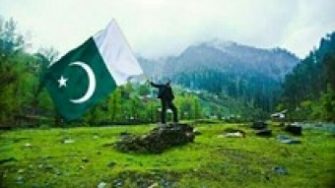SOVS members celebrate pakistan's independence day
Pakistan Independence Day is celebrated on 14th of August each year. It is a day when Pakistan was declared an independent state in 1947. On this day, people all over Pakistan celebrate Independence Day like a festival with great patriotic zest

